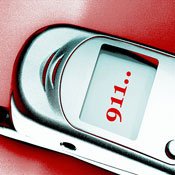The Hinds County Board of Supervisors approved a rate increase for the county's ambulance service to perform new life-saving procedures on patients this morning.
The new procedures and charges for American Medical Response include:
•Conducting an induced hypothermia procedure on patients in cardiac arrest for $50 (that the patient pays), by inserting an IV containing chilled fluids in a patient to reduce their body's demand for oxygen.
• An intraosseous infusion for $125 in which a small drill creates a hole in a patient's breast bone or sternum when paramedics are unable to start an intravenous line for an IV.
• Continuous positive airway pressure therapy for $65, which reduces the need for a paramedic to place a tube in a patient's trachea.
• Saline locks for $55, which are IV holders that allow for immediate access to a patient's vein during an emergency.
American Medical Response spokesman Jim Pollard told the board that AMR has not asked for a rate increase since 2008. He said that the new procedures are important for saving lives and preventing disabilities.
"What we are trying to do is recoup the cost (for supplies and training) and make a reasonable return on our investment," Pollard said.
District 1 Supervisor Robert Graham made a motion to vote on the contract amendment. The Board of Supervisors present voted unanimously for the amendment with District 2 Supervisor Doug Anderson absent and District 4 Supervisor Phil Fisher deployed in Afghanistan.
"Anytime we can add live-saving measures to our emergency response, it's worth doing," Graham said.
Pollard said that AMR must order 50 special coolers to chill the IV fluids to induce hypothermia. The company must also train its employees in the procedures, which many other ambulance services across the county are already using.
Currently, AMR charges patients for ambulance services based on the severity of injuries, mileage traveled and number of procedures paramedics perform.
"It's not unusual to have a bill of $1,500 or more," Pollard said.
Prisoner Medical Cost Savings
Hinds County Inmate Medical Facilitator Dan Gibson presented a monthly report to the board of supervisors showing that inmate medical expenses totaled $613,000 for the month of May, with the county paying just under $100,000 after Medicaid discounts.
Pharmacy expenses totaled $39,357 compared to $82,451 in February. Gibson attributed the decrease to the fact that more inmate cases are moving through the court system.
In April, Gibson told the board that the county had spent $1.3 million on medical care for prisoners, more than 50 percent of its annual inmate medical budget.


